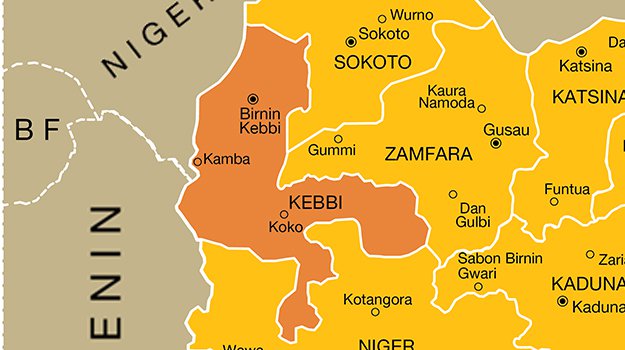The Northern States Governors’ Forum (NSGF) has condemned the abduction of 25 students from Government Girls Comprehensive Secondary School, Maga, in Danko/Wasagu Local Government Area of Kebbi State, describing the incident as another painful reminder of the growing insecurity affecting schools in the northern region.
The attack, which also led to the killing of the school’s vice principal, Malami Hassan Yakubu Makuku, has sparked widespread concern and renewed calls for stronger measures to protect students, teachers, and educational institutions.
In a statement issued on Monday, the NSGF Chairman and Governor of Gombe State, Muhammadu Yahaya, described the assault as “tragic, senseless, and utterly unacceptable.” The statement, signed by his spokesperson, Ismaila Misilli, stressed that the rising trend of targeting schools is threatening not only the safety of children but also the future of education in northern Nigeria.
Education-related attacks have become a serious challenge in several northern states over the past decade. Armed groups have repeatedly targeted schools in Zamfara, Kaduna, Katsina, Niger, and now Kebbi. These attacks often involve mass abductions of students, killings of teachers and security personnel, and the displacement of communities.
The most widely known example remains the abduction of 276 schoolgirls from Government Girls Secondary School, Chibok, Borno State, in 2014. Since then, several similar incidents have occurred, including the Kankara schoolboys’ abduction in Katsina in 2020 and the Tegina Islamic school abduction in Niger State in 2021. These incidents have fueled fears that the country may be losing the progress made in improving school enrollment, especially for girls.
Governor Yahaya echoed these concerns, warning that the continuous targeting of schools could erode years of hard work aimed at encouraging young people to stay in school.
“Schools must be sanctuaries of learning, not targets of violence,” he said. “Continued assaults on educational institutions threaten to reverse gains made in improving school enrolment and curbing the out-of-school crisis in the region.”
Nigeria currently has one of the highest numbers of out-of-school children in the world, according to UNICEF. Many of these children live in northern states where poverty, insecurity, and cultural barriers already make access to education difficult. Attacks on schools further worsen the situation by forcing parents to keep their children at home out of fear.
Governor Yahaya extended the NSGF’s sympathy to the Kebbi State Government, led by Governor Nasir Idris, as well as to the families of the abducted students and all others affected by the attack. He assured them of the Forum’s support during this difficult period.
“We stand firmly with the government and people of Kebbi State,” he said. “We mourn with the families of those who lost their loved ones and pray for comfort during this painful time.”
The killing of the vice principal has also drawn strong reactions from education stakeholders. Many describe the death of Malami Hassan Yakubu Makuku as a major loss not only to the school but to the entire community. Teachers in rural northern communities often work under difficult and insecure conditions, and attacks like this further dampen morale and worsen the shortage of teachers.
Governor Yahaya called for an immediate and well-coordinated response from security agencies to rescue the abducted students and bring the perpetrators to justice. He stressed that the trauma the girls may be facing in captivity is a matter of deep worry and must be addressed with urgency.
“An immediate and well-coordinated operation by security agencies is needed to ensure their safe rescue and the arrest of the perpetrators,” he stated.
The NSGF’s call for a coordinated approach reflects concerns that security agencies often struggle with inadequate equipment, manpower, and timely intelligence. Northern governors have, in recent years, advocated for better funding and restructuring of security formations to tackle banditry and insurgency more effectively.
Reaffirming the commitment of northern governors to work closely with the Federal Government, Governor Yahaya said the safety, education, and welfare of young Nigerians remain top priorities for the Forum.
He added that the governors will continue engaging with federal security institutions to improve strategies for protecting schools and communities.
The Federal Government has implemented several initiatives in the past aimed at improving school safety. One of these is the Safe Schools Initiative, launched in 2014, which was expected to provide security upgrades to schools, especially in vulnerable regions. However, many analysts believe the programme has not been implemented effectively across the country.
The recent attack in Kebbi, critics say, highlights the need for stronger monitoring and renewed commitment to ensuring that such programs deliver real impact.
Governor Yahaya also called on communities to remain watchful and cooperate fully with security agencies. He urged local leaders, parents, and youth groups to support efforts to identify suspicious individuals and prevent attacks before they happen.
Community vigilance has proven useful in some areas where residents have formed local watch groups or shared intelligence that helped foil planned attacks. However, security experts warn that such efforts must be properly coordinated to avoid exposing civilians to greater danger.
The governor concluded his message with prayers for the safe and swift return of the abducted students. He expressed hope that with collective effort, northern states can overcome the insecurity threatening education and development.
Monday’s attack has once again brought to the forefront the urgent need for peace and security across northern Nigeria. Beyond the immediate tragedy faced by the affected families, incidents like these have long-term effects on education, economic growth, and social stability.
Parents fear sending their children to school. Teachers are discouraged from working in rural areas. Communities are displaced. And young people, already facing limited opportunities, risk being drawn into crime or other dangerous activities.
While the security challenges facing the region are complex, many believe that renewed cooperation between state governments, the Federal Government, security agencies, and local communities can help reduce the threats.
